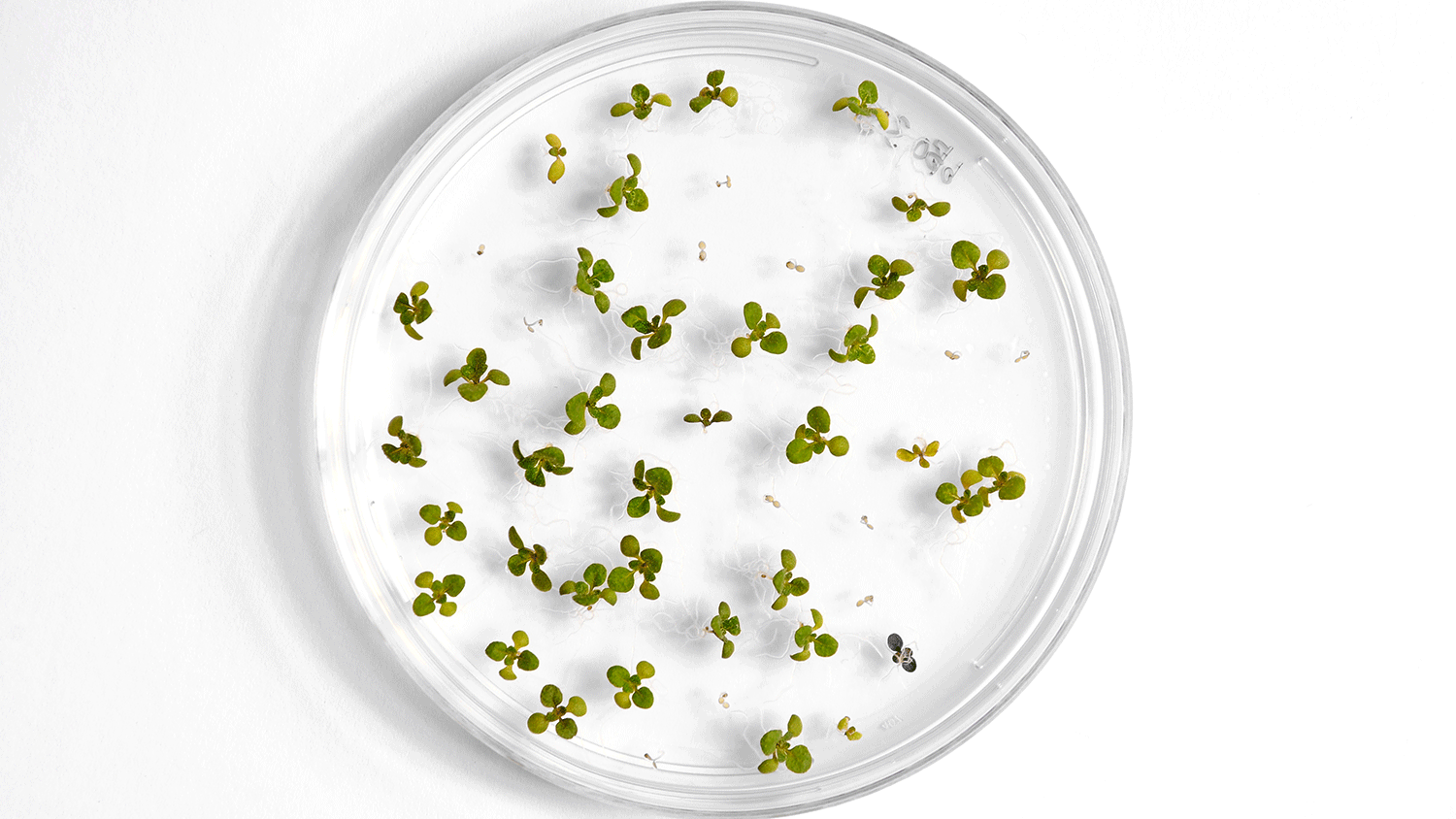New Plant Sciences Research Projects Taking Shape

Design of the Plant Sciences Building at NC State University is progressing, and so is the NC Plant Science Initiative (PSI) that the building will serve. Scientists from the College of Agriculture and Life Sciences and their partners near and far are ramping up interdisciplinary plant research.
Dr. Amy Grunden, of CALS’ Department of Plant and Microbial Biology, is one of them.
Earlier this year, Grunden helped develop a workshop for faculty members at NC State and three Danish universities – the University of Copenhagen, the Danish Technical University and Aarhus University.
Harnessing plant-microbe interactions for crop resilience
The researchers came from multiple disciplines – plant pathology, plant biology, engineering, biochemistry and microbiology – and all shared an interest in harnessing interactions of plants, soil and microbes to enhance crop resilience.
“We all met to basically brainstorm to develop research proposals that would really change our understanding of plant-microbe interactions,” Grunden said. “We want to know how we can take advantage of those interactions to essentially reduce fertilizer inputs and reduce insecticide and fungicide use, while enhancing plants’ ability to take up nutrients and deal with stressors.”
It’s a complex challenge with bold goals. In other words, it fits neatly the Plant Sciences Initiative’s overarching objectives: to advance the understanding of plant systems and to solve agricultural and biosciences problems through interdisciplinary teamwork.
Building commitments — and proposals
Since the March workshop, participants have worked together to develop proposals for three related projects. One focuses on plant-microbe interactions above ground, one focuses on such interactions at the root, and one involves deciphering the chemical landscape in soils to better understand how the microbes and the plants communicate, Grunden said.
Even if the projects aren’t funded by the Danish foundation that they were submitted to, the workshop marks an important step in the Plant Sciences Initiative’s evolution. “We’ve built a commitment to developing these projects,” she said. “We put together pieces that hadn’t been put together before, and we are building in reciprocal training opportunities for graduate students and postdoctoral researchers.”
Other NC State faculty members involved in the crop resiliency workshop were plant pathologists Ignazio Carbone, Marc Cubeta and Oliver Baars; plant scientists Christine Hawkes, Heike Sederoff and Ross Sozanni; and electrical and computer engineer Cranos Williams.
Helping farmers make data-based decisions to improve yields

Some of them, including Grunden, are also involved in another interdisciplinary project designed to propel the NC PSI forward. This summer, they submitted a planning grant for a center involving NC State and several other North Carolina universities. The center would drive engineering innovation in plant sensor development, data analytics and data integration, with the goal of helping farmers make sustainable, data-based decisions supporting higher yields.
Grunden has found her involvement in these projects so intellectually stimulating that they have “colored the direction of where I’m going in my research,” she said.
Two things are key, she added: “For a project to be a PSI project, it has to be interdisciplinary. And at the end of the day, the scientific questions must make a difference to food security and our understanding of plant systems.”
This post was originally published in College of Agriculture and Life Sciences News.


